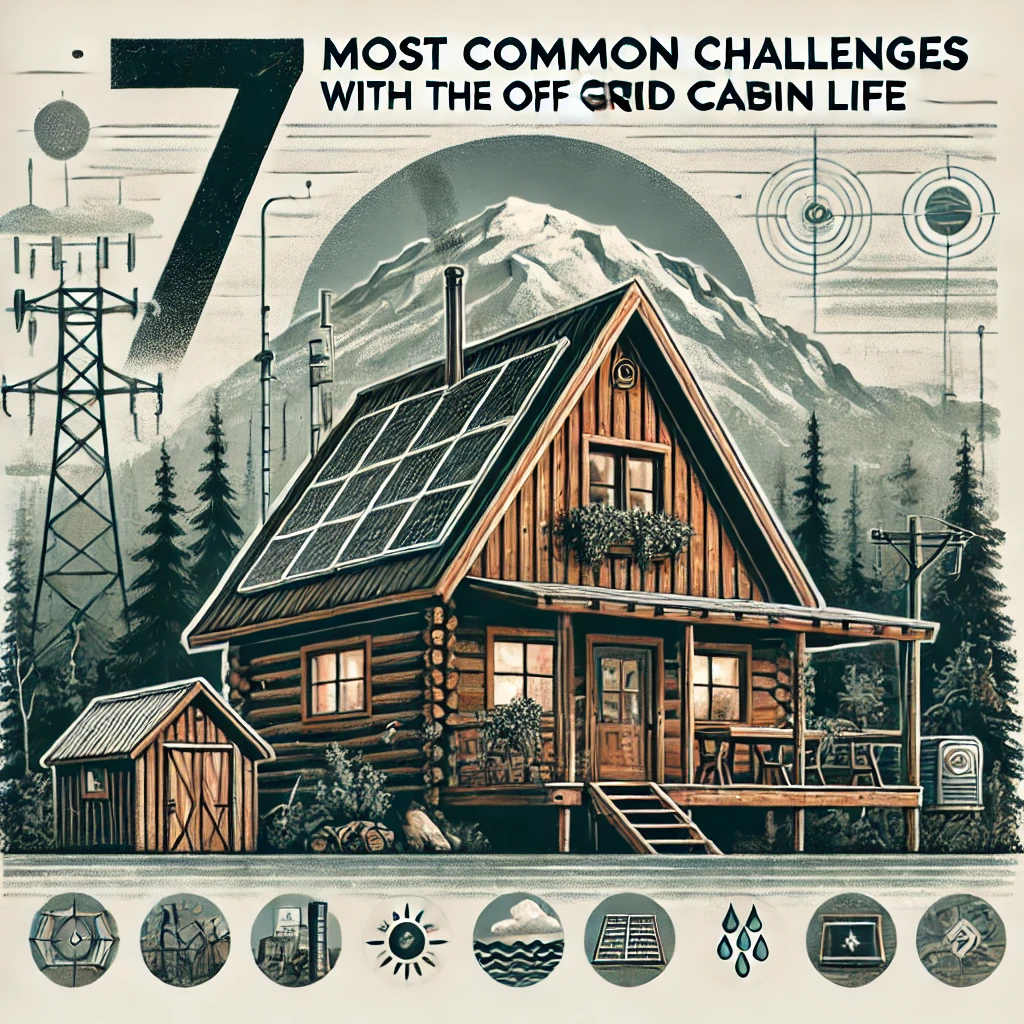Living off-grid in a cabin offers a unique lifestyle, but it also comes with its own set of challenges. Here are seven common challenges people may face:
Energy Management: Generating and managing energy off-grid can be a significant challenge. Whether it’s through solar panels, wind turbines, or other renewable sources, ensuring a consistent power supply requires careful planning and maintenance.
Water Supply: Accessing clean water off-grid can be tricky. Many off-grid cabins rely on wells, rainwater collection systems, or natural sources like streams or springs. Maintaining water quality and ensuring an adequate supply, especially in dry seasons, can be challenging.
Waste Management: Proper disposal of waste, both human and otherwise, is essential in an off-grid setting. Composting toilets, greywater systems, and responsible garbage disposal methods are often necessary to minimize environmental impact and maintain sanitation.
Weather Dependence: Off-grid living often means being more directly affected by weather conditions. Harsh winters, heavy rains, or extended periods of cloudy weather can impact energy generation, access to resources, and overall comfort.
Remote Location: Many off-grid cabins are situated in remote or isolated areas, which can pose challenges in terms of accessibility, emergency services, and social connections. Being far from town means planning trips for supplies and dealing with potential delays in receiving assistance if needed.
Maintenance and Self-Sufficiency: Maintaining an off-grid cabin and its systems requires DIY skills and self-sufficiency. From repairing solar panels to chopping firewood, residents often need to handle tasks themselves or arrange for occasional professional assistance, which may be harder to come by in remote areas.
Social Isolation: Living off-grid can be isolating, especially for those accustomed to a more social lifestyle. Limited interaction with neighbors and the absence of urban amenities may lead to feelings of loneliness or cabin fever, particularly during long stretches of inclement weather or low activity periods.
While these challenges can be daunting, many people find the rewards of off-grid living—such as increased self-sufficiency, connection to nature, and freedom from conventional constraints—outweigh the difficulties.
